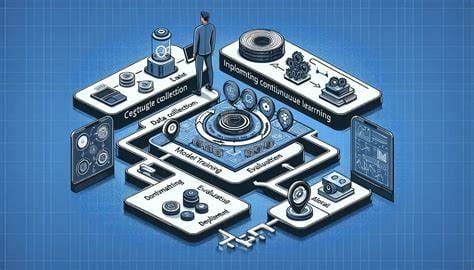Breaking New Ground in AI Continuous Learning System Developed by University of Alberta Researchers
One of the most significant current AI continuous learning systems, particularly deep learning models, has been their inability to adapt and learn effectively over extended periods when exposed to new data. This challenge, known as “catastrophic forgetting,” occurs when an AI model forgets previously learned information upon learning new data.
What is AI Continuous Learning?
Continuous learning, also known as lifelong learning, refers to an AI system’s ability to learn and retain knowledge over time, much like a human brain. Unlike traditional AI models that require retraining from scratch when exposed to new data, a continuous learning AI can update its knowledge base incrementally without losing prior information. This capability is crucial for developing more sophisticated and responsive AI applications across various fields, including healthcare, finance, and autonomous driving.
The University of Alberta’s Breakthrough
The research team at the University of Alberta has developed a novel AI system capable of continuous learning by utilizing a unique approach that allows the model to retain and build upon previously acquired knowledge while adapting to new information. This system leverages advanced neural network architectures designed to mitigate the effects of catastrophic forgetting. By implementing a method called Elastic Weight Consolidation (EWC), the AI model selectively consolidates the weights of the neural network that are critical to previously learned tasks while allowing other weights to adapt to new tasks.
The researchers’ approach also incorporates a memory replay mechanism, where the AI periodically reviews previously learned data alongside new data, reinforcing older knowledge and integrating new information seamlessly. This dual strategy ensures the model remains both flexible and robust, capable of handling a diverse range of learning scenarios without requiring a complete overhaul.
Potential Applications and Implications
- Healthcare: In healthcare, continuous learning AI systems could revolutionize patient care by constantly updating diagnostic models with new medical research and patient data without needing to retrain the system from scratch. This could lead to more accurate and personalized treatment recommendations.
- Autonomous Vehicles: For autonomous driving, a continuous learning model could allow vehicles to adapt to new road conditions, traffic patterns, and even local driving behaviors over time, enhancing safety and performance.
- Financial Services: In finance, AI systems that can learn continuously could improve fraud detection and risk management by adapting to new types of fraud and emerging market conditions without requiring frequent system retraining.
- Education and Personal Assistants: AI-driven educational tools and personal assistants could provide more customized and effective learning experiences, adapting to a user’s changing needs and knowledge base over time.
Challenges and Future Directions
While this breakthrough represents a significant step forward in AI research, continuous learning systems still face challenges. One major challenge is ensuring that these models do not become too rigid, where they prioritize old information over new, or too flexible, where they forget essential previously learned tasks. Balancing these aspects requires further refinement of the underlying algorithms and architectures.
Additionally, there are ethical considerations to address, particularly concerning the transparency and interpretability of continuous learning systems. As AI models become more complex and capable of evolving over time, ensuring that their decision-making processes are understandable and accountable remains crucial.
Conclusion
The development of a continuous learning AI system by researchers at the University of Alberta marks a promising advancement in artificial intelligence, addressing one of the field’s longstanding challenges. This innovation opens up new possibilities for AI applications across various sectors, potentially transforming how we utilize and interact with intelligent systems. As researchers continue to refine these models, the future of AI looks more adaptable and integrated than ever before.
For more information on this groundbreaking research, you can read the full article on Tech Xplore.
By staying updated on the latest developments in AI, we can better understand and prepare for the transformative impacts these technologies will have on our world. For more news and updates on AI and computer science, visit Computese!








